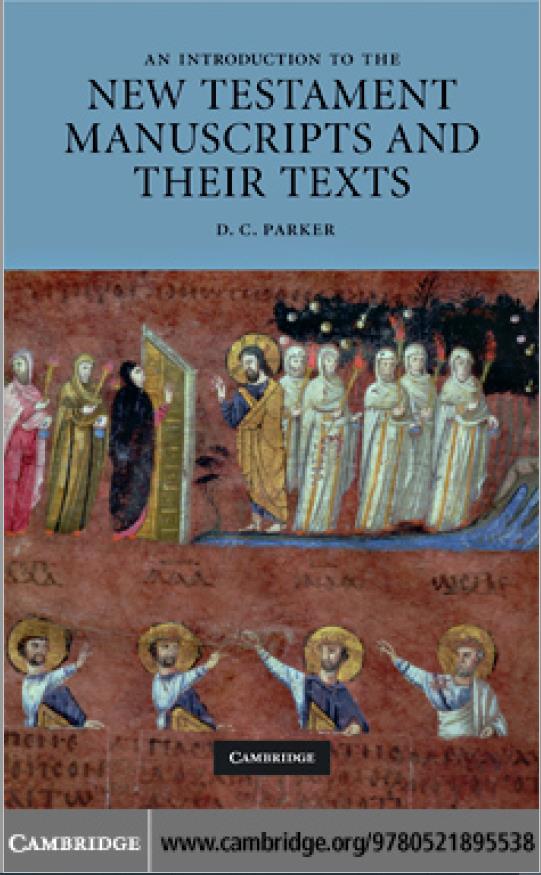فادي ك
Member
- إنضم
- 5 يونيو 2013
- المشاركات
- 47
- مستوى التفاعل
- 6
- النقاط
- 8
وفي صفحة 202 يعلق على أن استشهاد الآباء يُستخدم في الدعم فقط في حالات محددة :
Now about the Fathers themselves. One of the problems with patristic evidence is that it must be carefully analyzed before it can be used. That is, one must be sure (a) that a given Father's work has been faithfully transmitted, (b) that the Father was actually quoting (= copying), not merely "remembering" his NT, and (c), especially in the Gospels, that it was one Gospel and not another that was being quoted.
Pickering brushes off item (a) by calling it a "quibble" (69). But one may be assured that this is not a quibble; it is crucial. Unfortunately, all of Burgon's data that Miller used is suspect because of his use of uncritical editions, especially Migne. This will be noted several times in the following discussion.
Item (c) is also an area where Burgon and Miller were indiscriminate in their use of Fathers' texts. It is simply a maxim in the citation of patristic evidence for the Gospels that a Father can be cited in support only (a) if he tells us he is citing one Gospel, not the others (including specific commentaries and homilies, of course), or (b) the citation is unique to one of the Gospel writers, or (c), when there are parallels, the language of one Gospel is so unique as to make identification probable. The problem here is a simple one: Early Fathers were as prone as we are today to harmonize and collate, and therefore to speak of the "rich young ruler," although all three of these designations appear in no single Gospel.
Burgon's and Miller's data are simply replete with useless supporting evidence; and Pickering apparently cites Burgon or Miller without ever checking their data. Thus, in his one "concrete definition" of the idea of "antiquity," Pickering (130) cites Burgon's data on the appearance of "vinegar" in Matt 27:34, an article which Burgon considered to be his finest hour (1896b: 253-58). I took the trouble to check over three-quarters of Burgon's seventeen supporting Fathers and not one of them can be shown to be citing Matthew.
Now about the Fathers themselves. One of the problems with patristic evidence is that it must be carefully analyzed before it can be used. That is, one must be sure (a) that a given Father's work has been faithfully transmitted, (b) that the Father was actually quoting (= copying), not merely "remembering" his NT, and (c), especially in the Gospels, that it was one Gospel and not another that was being quoted.
Pickering brushes off item (a) by calling it a "quibble" (69). But one may be assured that this is not a quibble; it is crucial. Unfortunately, all of Burgon's data that Miller used is suspect because of his use of uncritical editions, especially Migne. This will be noted several times in the following discussion.
Item (c) is also an area where Burgon and Miller were indiscriminate in their use of Fathers' texts. It is simply a maxim in the citation of patristic evidence for the Gospels that a Father can be cited in support only (a) if he tells us he is citing one Gospel, not the others (including specific commentaries and homilies, of course), or (b) the citation is unique to one of the Gospel writers, or (c), when there are parallels, the language of one Gospel is so unique as to make identification probable. The problem here is a simple one: Early Fathers were as prone as we are today to harmonize and collate, and therefore to speak of the "rich young ruler," although all three of these designations appear in no single Gospel.
Burgon's and Miller's data are simply replete with useless supporting evidence; and Pickering apparently cites Burgon or Miller without ever checking their data. Thus, in his one "concrete definition" of the idea of "antiquity," Pickering (130) cites Burgon's data on the appearance of "vinegar" in Matt 27:34, an article which Burgon considered to be his finest hour (1896b: 253-58). I took the trouble to check over three-quarters of Burgon's seventeen supporting Fathers and not one of them can be shown to be citing Matthew.

